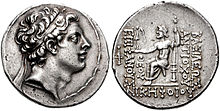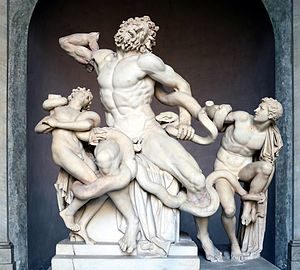Post #34
Dear Readers,
We are dedicated to the absolute co-equality and balance between men and women! Our premise is that God created us this way to be whole, complete, unified – as One, through one another, masculine and feminine. That is what Jesus taught men. We are discussing how the Word of God as taught by Jesus of Nazareth was willfully or inadvertently misrepresented or misunderstood such that men came to believe they were somehow more equal.
~~~~~~~//~~~~~~~

“The Word 2.0” References are to pages in the book. And our many thanks to Wikipedia!
~~~~~~~//~~~~~~~
Did Jesus appear in order to found a new religion? The religion we call “Christianity” in particular? As we are want to do in The Word 2.0, we look to the words of Jesus himself to clarify such questions. We have found many things which Jesus said to be very insightful. His ministry and our calling is of God’s Divine Feminine aspect – of reconciliation of relationships. We read and understand from his words again and again how he juxtaposes masculine and feminine traits – consider this saying for example:
“Do not think that I have come to destroy ‘the Law’ or ‘the Prophets’. I am not come to destroy but to fulfill (reconcile).
“And until Heaven and Earth pass, not one jot or one tittle shall pass from ‘the Law’ – until all is fulfilled (reconciled).” (Page 86.)
Jesus very clearly states he is not come to “destroy”, to destroy being a masculine trait, “the Law“ – Judaism. In contrast he draws our attention to “fulfill” – which we translate ‘reconcile‘, a feminine trait. Saul/Paul also refers to and affirms Jesus’ “Ministry of Reconciliation” in his writings on pages 412 – 413. This comparison will also appear in our discussion of the “Feasts of the Lord” – the timeline for his life and ministry.
Understand from this reading, however you choose to read it, all is not fulfilled (reconciled). And not only does Jesus have no impulse or urge, intention or desire or even motive to divert from Judaism. He did not minister to invent any new religion in his or God’s name. He never spoke a word suggesting it, nor did he take any action inferring it. Quite the opposite in fact, as we learn from his ministry and even the construction of this passage. He teaches men about “Feminine-ism” – the female traits men must develop to restore Divine Balance throughout Creation by God and Judaism.
Every reader is encouraged to follow one or more of these themes. Today we are interested in beginning a conversation about a new religion – “Christianity”, was founded after Jesus passed from the scene. Consider these few points:
- In the Hebrew, the word Messiah, M’shiha or HaMashiach is not gender specific – it could be applied equally to a man or a woman. It applies to anyone in the role of a deliverer, a savior or a redeemer. And might include both Moses or Esther equally.
- The word krystos, Kristos or Christos – the root for the word Christian and Christianity, is a masculine pronoun in its native Greek. Hence from the earliest Greek translations of Scripture, and subsequent writings, the concept of “Christ” was accepted in the West as the object of Hellenist “man-worship” – subject to all the preconditions of the Greek-Hellenist worldview.
- It is in Acts 11:26 regarding events in about 43 C.E. where we read, “The disciples were called Christians first at Antioch.” Regardless of when the event actually took place that the expression “Christians” was first used, and therefore “Christ” and “Christianity”, Antioch was regarded as one of two powerful Hellenist centers that arose when the Greeks were defeated in Judea-Israel some 200 years earlier in about 160 B.C.E.
- We note from the NIV Study Bible published in 1983, a comment that the name “Christian” may have been “invented” as a “reproach” by those opposed to the Greek-Hellenist influence on traditional Judaism – the Nazarene Sect of Jesus for example.
- As we have discussed elsewhere, and will remind readers, Jesus was a Traditionalist Rabbi and Teacher was opposed to Greek Hellenism.
We continue to wonder: Would Jesus himself have ever approved, permitted, allowed, or otherwise have acquiesced to the use of any Greek-Hellenist title or identification to either himself, his purely Jewish teachings, or anything to do with his movement?
Of course was this the only adjustment the Greek Hellenists made to Scripture, perhaps we might look at this circumstance differently. But by the time Rome co-opted the “Christian” religion, many, many more changes were made. Changes we will discuss in future weblogs.
Peace!
Miguel
~~~~~~~//~~~~~~~
God is One! We are one!
Consider the Sh’ma (Shema):
“Hear O Israel – The Lord our God is One Lord. And you shall love the Lord your God with all your heart, and with all your soul, and with all your mind, and with all your strength.’
This is the first and great commandment.
The second is like it, namely this: You shall love your neighbor as yourself.” (Pages 305 – 306.)
Whether or not you agree please be our “Friend” and “Share” us with your friends!
You are reading one in a series on the “Feminine-ist” teaching of Jesus of Nazareth.
As a Traditionalist Rabbi opposed to Hellenism, Jesus’ teachings are drawn entirely from the Law, the Hebrew-Jewish Scripture and the Traditionalist doctrine of his day. To which he chooses to specifically emphasize God’s Divine Balance – the absolute co-equality, balance, unity, harmony and Oneness of God’s masculine and feminine aspects.
~~~~~~~//~~~~~~~
This weblog, our pamphlets, study guides and other materials are inspired by Miguel’s book, The Word 2.0, a new biography of Jesus of Nazareth in his own words, based upon a single, unified timeline that reveals important new details about his life and ministry! For example that Jesus was not a Hellenist!
~~~~~~~//~~~~~~~
God is undifferentiated masculine and feminine energy in perfect balance, whole, complete, unified, and co-equal. God is neither male nor female, and yet both – inseparable! And as a reflection of God’s Divine Balance, God made each of us manifest as male and female, man and woman, in God’s perfect likeness! Truly a state of grace.
How Adam’s actions brought about the fall from this state of grace is something we will discuss elsewhere. Suffice it to say that long before Jesus was born, men and women were already out of balance. In the more immediate sense of events which took place in Israel before Jesus was born, I found the Seleucid Greek invasion critically important because of the belief system we call “Hellenism” the Greeks forced on the children of Israel at that time.
It may not be especially well known today but the Seleucid Greeks from Syria outlawed our One True God! They forbade the worship of God under the penalty of death. Their King Antiochus IV Epiphanes (Antíochos D’ ho Epiphanḗs, “God Manifest”), believing he was god, decreed the people would have no other god before him.
Hellenism did cause divisions among the people though. On one hand identifying with the Greek empire and culture could enrich certain elite Israelites, but on the other hand their man-worship violated God’s Law. This divided not only those who were “Hellenists”, their supporters and adherents, from those who were “Traditionalists“, but also, apparently, men from women. Why? Because it is also in the nature of Hellenism that women be subordinate to men.
But our One True God was definitely not a Hellenist, right? Given that, Jesus was not a Hellenist – quite the opposite. We might characterize Jesus’ ministry as anti-Hellenist – teaching men in particular about the Divine Balance of God’s Feminine and Masculine aspects, specifically “Feminine-ism“. I briefly outline some basic principles of Jesus of Nazareth’s life and ministry, as they are revealed in “The Word 2.0”:
1. Jesus was a “Traditional” Hebrew-Jewish teacher and Rabbi – to say the very least!
2. Jesus was not a “Hellenist” in any sense of our understanding the word.
3. Jesus espoused and promoted that our One True God – the God of Israel, is a perfect co-equal balance of both masculine and feminine, as is reflected in all Creation.
4. Jesus said that we must love the Lord our God first and foremost, and then love one another as we love ourselves.
5. Jesus taught that love, beginning with God’s “Ruach HaKodesh” – the Breath of Life and Holy Spirit, as aspects of God’s Divine Feminine, is the only way that men can experience the Kingdom of God.
6. Jesus rejected the kind of egocentric, selfish, self-centered thinking and behavior of men that characterizes “Hellenism”.
We will discuss each of these points in much greater detail as we continue, and, look for my study guides they will soon also be available!






